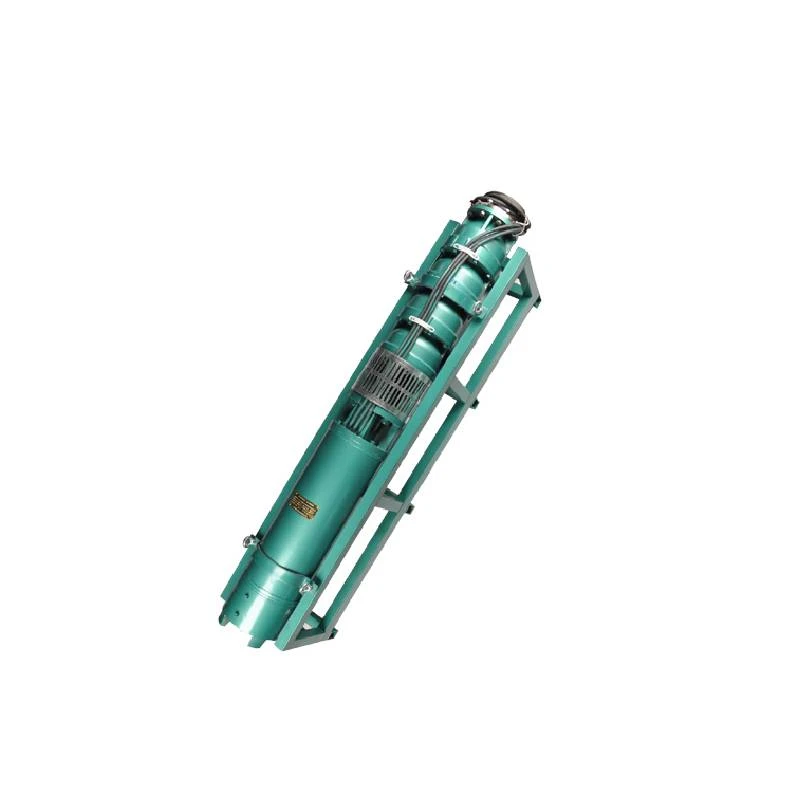Dec . 11, 2024 09:36 Back to list
Deep Well Pump Cost Analysis for Efficient Water Extraction Solutions
Understanding Deep Well Pump Prices Factors Influencing Costs
Deep well pumps are an essential component in many agricultural, industrial, and municipal water supply systems. These pumps are designed to extract water from deep underground sources, making them invaluable for areas that rely on groundwater. As the demand for clean water increases and underground aquifers become more critical, understanding the pricing of deep well pumps is necessary for both consumers and suppliers.
What are Deep Well Pumps?
Deep well pumps, often referred to as submersible pumps, are specialized devices that can be submerged into water wells to lift water to the surface. They are typically used in situations where the water table is deeper than what traditional pumps can handle. These pumps are characterized by their design, which features multiple stages of impellers that allow for efficient lifting of water from significant depths.
Factors Influencing the Price of Deep Well Pumps
Several factors contribute to the pricing of deep well pumps. Understanding these can help potential buyers make informed decisions.
1. Type of Pump There are various types of deep well pumps, including submersible pumps, centrifugal pumps, and turbine pumps. The type significantly affects the cost. Submersible pumps are generally more expensive due to their complexity and efficiency. In contrast, centrifugal pumps may be more affordable but might not perform as well in deeper wells.
2. Depth and Capacity The necessary depth and capacity of the pump can also impact pricing. Pumps designed for deeper installations or those that need to lift more water per minute are typically more expensive. Buyers must evaluate their specific needs to select a pump that offers the right balance of performance and cost.
deep well pump price

3. Material and Durability The materials used in manufacturing deep well pumps affect their price. Stainless steel, for instance, is often used for its durability and resistance to corrosion, especially in acidic or mineral-rich water. Pumps made of higher-quality materials will generally have a higher price tag but may offer a longer lifespan and lower maintenance costs.
4. Brand and Technology The brand reputation plays a significant role in pricing. Well-known manufacturers with proven track records often charge a premium for their products. Additionally, advancements in technology, such as energy-efficient designs or smart pump controls, can also lead to higher prices. Nonetheless, investing in technology can yield long-term savings through reduced energy consumption and improved functionality.
5. Installation and Maintenance Costs When considering the total expense of a deep well pump, buyers should not overlook installation and maintenance costs. Professional installation is often required for deep well pumps, especially in challenging environments. Regular maintenance ensures optimal operation and can prevent costly repairs down the line.
6. Location The geographical location of the buyer can affect prices due to shipping costs and local market conditions. For instance, rural areas may experience higher transportation costs, increasing the overall price of the pump. Additionally, local demand and competition can influence pricing trends.
Estimating the Price Range
On average, deep well pumps can range from a few hundred to several thousand dollars, depending on the factors mentioned above. Basic submersible pumps may start around $300, whereas more advanced models designed for deeper wells can surpass $5,000. It’s essential for buyers to request quotes from multiple suppliers, ensuring they secure the best deal while considering quality and warranty options.
Conclusion
Deep well pumps are a critical investment for many sectors reliant on groundwater. By understanding the various factors that influence their pricing, consumers can make educated choices that fit both their budget and their water extraction needs. As water scarcity issues escalate globally, the role of efficient and reliable deep well pumps will only continue to grow, making a thorough understanding of their costs and functionalities even more vital for prospective buyers.
-
Submersible Water Pump: The Efficient 'Power Pioneer' of the Underwater World
NewsJul.01,2025
-
Submersible Pond Pump: The Hidden Guardian of Water Landscape Ecology
NewsJul.01,2025
-
Stainless Well Pump: A Reliable and Durable Pumping Main Force
NewsJul.01,2025
-
Stainless Steel Submersible Pump: An Efficient and Versatile Tool for Underwater Operations
NewsJul.01,2025
-
Deep Well Submersible Pump: An Efficient 'Sucker' of Groundwater Sources
NewsJul.01,2025
-
Deep Water Well Pump: An Efficient 'Sucker' of Groundwater Sources
NewsJul.01,2025
-
 Submersible Water Pump: The Efficient 'Power Pioneer' of the Underwater WorldIn the field of hydraulic equipment, the Submersible Water Pump has become the core equipment for underwater operations and water resource transportation due to its unique design and excellent performance.Detail
Submersible Water Pump: The Efficient 'Power Pioneer' of the Underwater WorldIn the field of hydraulic equipment, the Submersible Water Pump has become the core equipment for underwater operations and water resource transportation due to its unique design and excellent performance.Detail -
 Submersible Pond Pump: The Hidden Guardian of Water Landscape EcologyIn courtyard landscapes, ecological ponds, and even small-scale water conservancy projects, there is a silent yet indispensable equipment - the Submersible Pond Pump.Detail
Submersible Pond Pump: The Hidden Guardian of Water Landscape EcologyIn courtyard landscapes, ecological ponds, and even small-scale water conservancy projects, there is a silent yet indispensable equipment - the Submersible Pond Pump.Detail -
 Stainless Well Pump: A Reliable and Durable Pumping Main ForceIn the field of water resource transportation, Stainless Well Pump has become the core equipment for various pumping scenarios with its excellent performance and reliable quality.Detail
Stainless Well Pump: A Reliable and Durable Pumping Main ForceIn the field of water resource transportation, Stainless Well Pump has become the core equipment for various pumping scenarios with its excellent performance and reliable quality.Detail
